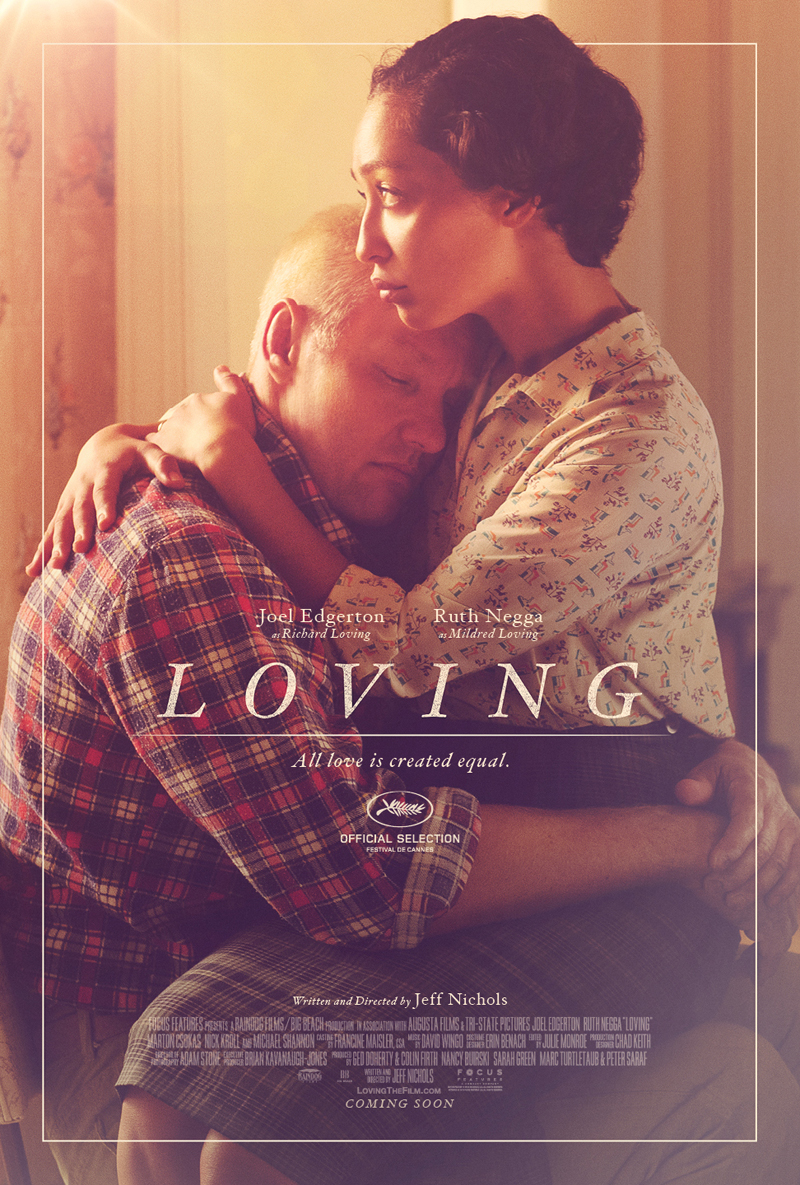Loving
4 out of 4 stars
by Bayard Lewis
In 1950’s America, marrying outside of your race was illegal in Virginia and a number of other states. Richard and Mildred Loving’s relationship could have landed them in prison if they had chosen to stay in the state. They covertly traveled to Washington DC to get married.
When Mildred was pregnant with their first born, police officers illegally entered their home as they slept, arrested them, and held them in jail. After pleading guilty they agreed to leave the state for 25 years and could not return together.
Their story unfolds slowly, intimately, showing how their lives are interwoven with both families and that they experience heartache when forced to uproot their lives in Virginia to stay married. Even within her own community, Mildred endured damning looks from her neighbors who disapproved of her marrying a white man. They begin a new life together for their family in Washington DC, accepting that the cost of their marriage freedom means living away from their parents.
Renewed hope arrives years later in 1963 when Martin Luther King Jr.’s march on Washington is televised. A freshman lawyer for ACLU contacts them with hope that their case could be heard by the Supreme court. I was glad to see that the film did not fall back on an unnecessary dramatic showdown with the halls of the Supreme Court, but rather showed that Loving family continued their lives as usual.
Director Jeff Nichols has hit dramatic gold again with this tale of social justice. His previous films “Mud” and “Midnight Special” also contain a level of character development that’s sorely lacking in most films that make it to wide release. The basic arc of the story contains enough human depth that there’s no need to artificially introduce climaxes.
“Loving” is an intimate window into the lives of two people who simply wanted to raise a family in peace. Throughout the film tender moments between Mildred and Richard reveal their deep love for one another. An inferior film would have used overly melodramatic moments to hammer the meaning and emotions into the audience’s heart. Their courage is explored in the highs and lows of their entanglement with the legal system and their eventual vindication with the Supreme Court striking down anti-miscegenation laws. Without specifically referencing recent equality laws in the U.S., the film’s heartbreaking story reminds the audience that bigotry in public service has a limited lifespan.




Leave a Reply